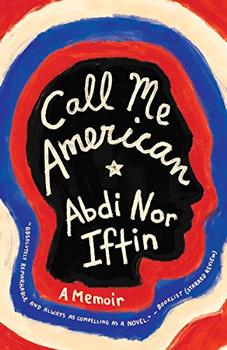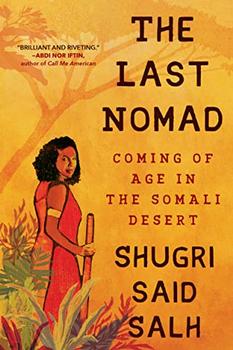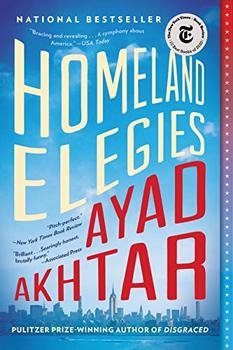Summary | Excerpt | Reviews | Beyond the book | Read-Alikes | Genres & Themes | Author Bio

A Memoir
by Abdi Nor IftinAs a boy growing up in Mogadishu, the capital of Somalia, Abdi Nor Iftin loved watching action movies in a makeshift theater. By doing so, he learned enough English to translate the films for the rest of the audience. As a teen, he also enjoyed hip-hop. Iftin's parents condemned him for his embrace of American pop culture, as did the sheikh at the local madrassa, where he was scolded and beaten. Through years of loss, poverty, and destruction, the one constant in Iftin's life was his enduring love for all things American, earning him the sobriquet, Abdi American.
Born in the mid-eighties to nomadic parents who moved to Mogadishu to escape drought, Iftin grew up in relative stability despite the civil war raging just beyond the city's borders. He and his brother listened to their mother's stories about life in the countryside and marveled at the relative celebrity his father had achieved as a basketball player for a local team. But when the war reached Mogadishu, calm turned to chaos, forcing the Iftins to flee. Once the sectarian violence spread, Iftin's father, often pulled over and beaten by checkpoint guards, thought the family would be safer without him and left. As Iftin writes with chilling starkness, his father "knows his presence with us could kill us all, because the militias are terminating men with their families together. But they might spare kids with moms." Fatherless and barely surviving, the family eventually returned to the hollowed out city and struggled to eke out a meager life. Neither Mogadishu nor the rest of Somalia would return to normal.
Through decades of civil war which collapsed the state government, and a failed U.S. intervention in the early 1990s which led to the death of American soldiers by local warlords, Iftin endured personal tragedies, poverty, separation, and near-starvation. Only American pop culture and a fleeting chance at romance spurred him on.
In 2006, Mogadishu fell to the radical Islamic group, al-Shabaab. Soon after, U.S. supported African Union troops entered the country to drive them out. During this period, many Somalis, including Iftin and his mother, escaped to a refugee camp outside the city. Unfortunately this region too was controlled by al-Shabaab. Fearing recruitment by jihadi forces, Iftin eventually returned to Mogadishu alone. Dodging snipers and terrorist attacks by day and hiding in a ditch at night, Iftin lived by the skin of his teeth. A chance encounter with an American journalist covering the war finally offered him a small glimmer of hope. An article about his experiences led to a post as a correspondent for NPR, which garnered him sponsors from Britain and the U.S. They helped Iftin resettle in Kenya and resolve visa and green card disputes in his efforts to finally come to America.
Call Me American can often feel like the Hollywood movies Iftin loves. His hide-and-seek game with the al-Shabaab is as suspenseful as any thriller. And there are moments of pure heartbreak as well. But Iftin, who has the storytelling savvy of a skilled reporter, never wavers into sentimentality. His revelation that Americans turn "guns on each other like Somali militiamen," letting the wind out of his romanticization of the country he loved, prevents Call Me American from descending into mawkishness. Yet Iftin doesn't give in to despair either. In spite of the challenges he and his people continue to face, Iftin shows that imagining a more hopeful future for himself and his family can be enough of a triumph in these dark times.
![]() This review was originally published in The BookBrowse Review in May 2018, and has been updated for the
July 2019 edition.
Click here to go to this issue.
This review was originally published in The BookBrowse Review in May 2018, and has been updated for the
July 2019 edition.
Click here to go to this issue.

If you liked Call Me American, try these:

by Shugri Said Salh
Published 2022
"I am the last nomad. My ancestors traveled the East African desert in search of grazing land for their livestock, and the most precious resource of all - water. When they exhausted the land and the clouds disappeared from the horizon, their accumulated ancestral knowledge told them where to move next to find greener pastures. They loaded their ...

by Ayad Akhtar
Published 2021
From the Pulitzer Prize-winning author of Disgraced and American Dervish: an immigrant father and his son search for belonging -- in post-Trump America, and with each other.
Your guide toexceptional books
BookBrowse seeks out and recommends the best in contemporary fiction and nonfiction—books that not only engage and entertain but also deepen our understanding of ourselves and the world around us.